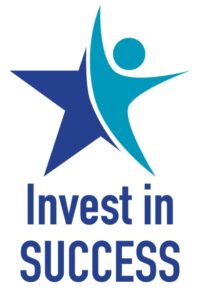
In most industries, organizations are constantly seeking innovative ways to stand out, attract attention, and secure necessary resources for growth and development. Higher education facilities management is a bit different. Generally, we are not competing with any other entities. We are the only option for cleaning and maintenance on our campus. And because we feel as though we have no competition, we don’t work to stand out and avoid attracting attention. Is this avoidance limiting our ability to secure the resources we need for growth and development? While we don’t need the traditional marketing strategies that focus on external campaigns and branding initiatives, one of the most powerful tools for value creation lies within the organization itself: our frontline staff.
Frontline staff members are the face of every facilities management organization. They play a pivotal role in shaping perceptions and experiences for students, faculty, and staff. The frontline staff cleans and maintains the educational spaces that are the foundation of campus culture. These individuals’ skill, knowledge, and commitment to exceptional service have a profound impact on the campus culture. Without the frontline, there is no execution of the educational mission.
Exceptional frontline facilities staff go beyond simply fulfilling their job duties; they become ambassadors for the organization, actively building a support network among those they interact with. This network, comprised of satisfied students, faculty, staff, and impressed visitors, forms a base for advocacy and support that can be key in securing additional funding and resources from administration.
Here are some ways in which skilled and knowledgeable frontline staff contribute to value creation within a facilities management organization.
-
- Positive experiences and relationships: Frontline facilities staff have direct contact with the campus community, providing them with the opportunity to create positive experiences and build lasting relationships. By delivering exceptional service, they cultivate trust, loyalty, and goodwill, laying the groundwork for a supportive network of advocates. These relationships cannot be built if the staff is not seen. One of the biggest mistakes of facilities organizations is performing 80% of their work during the night and on weekends. The frontline staff is paramount in carrying out the educational mission, and they deserve to be seen.
- Brand representation: Frontline staff serve as ambassadors for a facilities management organization, embodying its values, mission, and brand identity in their interactions. Their professionalism, expertise, and dedication reflect positively on the organization, enhancing its reputation and credibility. Again, in order to represent the facilities management organization, the frontline staff needs to be present and seen by students, faculty, and staff. Ensure that they have access to uniforms or adhere to a standard dress code. Most critically, make sure they know how important they are in the execution of the educational mission.
- Effective communication: Skilled frontline staff possess strong communication skills, enabling them to effectively convey information, goals, and needs to building users. Whether providing technical information, addressing concerns, or soliciting support, clear and compelling communication is essential for building rapport and garnering advocacy. Communication is the single most important skill a facilities manager can have. Frontline staff are technical experts. Providing them with communication training will aid in the conveyance of technical information to students, faculty, and staff in a way that they can understand which will add value.
- Problem-solving and innovation: Frontline staff are often the first point of contact for addressing issues and resolving challenges. Their ability to problem-solve, think creatively, and adapt to various situations demonstrates commitment to excellence and customer satisfaction. Solving problems and providing innovative solutions exemplifies stewardship of resources. Considering resources are always lacking, being a steward is yet another way to create value.
- Feedback and improvement: Frontline staff serve as valuable sources of feedback, providing insights into the needs, preferences, and concerns of students, faculty, and staff. By listening attentively and responding proactively, facilities management organizations can continuously improve their services, programs, and operations. Facilities management leaders often spend time gathering feedback from campus constituents. Be sure you are spending equal time listening to your frontline staff, as they are the most valuable resource available.
By recognizing the pivotal role of frontline staff in value creation, facilities management organizations can invest in training, development, and support to maximize their impact. Empowering frontline staff with the skills, knowledge, and resources they need to excel not only enhances the quality of service delivery but also strengthens the facilities management organization’s position within the campus community. When frontline staff are seen as vital in the execution of the educational mission, the campus community will advocate for facilities management funding.
Facilities management leaders should actively engage with frontline staff to foster a culture of collaboration, recognition, and appreciation. By acknowledging their contributions, celebrating their successes, and providing opportunities for growth and advancement, facilities management organizations can cultivate a motivated and dedicated workforce that is fully committed to advancing the educational mission of the institution. Training for frontline staff is often technical in nature. It is time to include communication, leadership, and customer service in the curriculum. If they feel valued, they will create value.
Lindsay Wagner, PhD, is the owner of The Knowledge Collaborative, based in Lake Havasu City, Arizona. She can be reached at [email protected]. If you would like to contribute to this column, please contact Lindsay directly.
Facility Asset Management
Covers the issues and challenges surrounding the management of a facilities department, including solutions for benchmarking performance measures, database and reporting systems, and professional and educational trends in facilities management. To contribute, contact Lindsay Wagner, field editor of this column.
See all Facility Asset Management.



